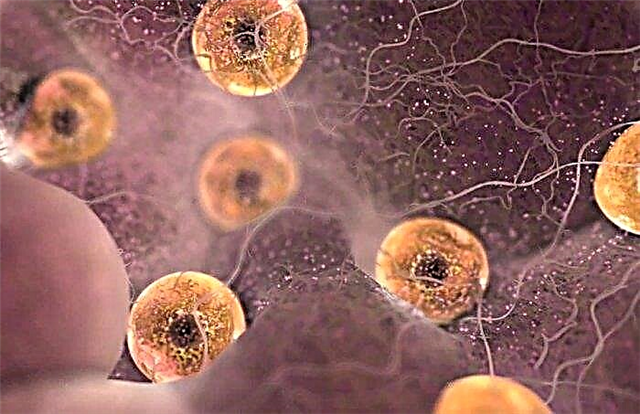
In connection with the widespread use of IVF as a method of combating infertility, there is more and more information about the long-term consequences of human intervention in the affairs of nature, in particular, in reproduction. So, you can often hear that women who have undergone IVF run the risk of being among the patients of the oncological dispensary. Is this so and what are the risks in reality, we will tell in this material.

Proof of connection
IVF has been done all over the world for 40 years. From an ordinary point of view, this is a long time. From the point of view of science, this is too little to be able to speak with confidence about all possible distant consequences.
The British were the first to talk about the dangers of in vitro fertilization and the relationship of this procedure with oncology; they conducted a study at the University of London that showed that women who had IVF experience were 37% more likely to develop oncology. At the same time, cancer after IVF was found mainly in young women (up to 35 years old).

After a more thorough study, the British apologized to the world community and admitted that most often women already had cancer at an early stage even at the time of IVF. Actually, most likely, it was he who became the reason for their infertility, which pushed the ladies to artificial insemination.
Several years later, Israeli scientists reported on their findings: they observed a group of 10 thousand women after IVF. The conclusions were disappointing - the likelihood of cancer after this procedure rises to 40%. Lung cancer was detected in 60% of cases, breast cancer in 85%. This was followed by cancers of the cervix and ovaries, thyroid gland and stomach.
Israeli experts explained that the increased risks are created by aggressive hormone therapy, which a woman undergoes both at the preparatory stage, when they stimulate the growth of follicles in her ovaries, and at the stage following embryo replanting. And given that the probability of getting pregnant from the first protocol is not so high, many women have to endure hormonal shocks for 6, 7, 8 or more attempts to get pregnant.

A little later, Israeli scientists corrected themselves and denied the connection with IVF oncology of any other organs, except for the mammary gland, ovaries, uterus, and its cervix. This step confused the specialists a little, but did not touch the ardent opponents of IVF. Now, some people, even demanding the abandonment of artificial insemination on religious grounds, refer to this study of Israel.

Arguments Against Relationship
The Americans went further than other researchers. They took a large control group - about 70 thousand women who had done IVF from 1994 to 2011. At the same time, a second group was created - it consisted of 19 thousand women, those who refused IVF for some reason and reason. As a result, it turned out that the incidence of cancer in both groups was about one and a half thousand cases.
Among women who underwent IVF and turned out to be patients of oncological hospitals, those who underwent several protocols, and all of them were unsuccessful, predominated. Thus, the scientists concluded that it is incorrect to claim that IVF provoked cancer.

In 2007, Danish specialists decided to conduct an experiment with their patients and also did not find a relationship between IVF and oncological ailments. The study analyzed information on 55 thousand women who were diagnosed with breast cancer. According to statistics, about 10% of them had IVF. All other patients of the clinic, who were treated there at different times over the past 30 years, were either childless, or became pregnant and gave birth in a completely natural way and never thought about IVF.

Where is the truth?
Scientists and physicians are still searching for the truth and it is too early to say which of the researchers is right. To date, the statement that IVF causes such a dangerous complication as cancer, provokes the growth of cancerous tissues and metastases, has not been proven. Many oncologists are not inclined to see any relationship. But they also do not seek to deny it, because the causes of cancer are a secret for scientists.
If we go to the facts, then we can recall Zhanna Friske. She was diagnosed with cancer sometime after giving birth. Son Plato was born after a successful IVF protocol. The wife of Konstantin Khabensky, who had also done IVF shortly before, also died of cancer.


Specialists in the field of oncology say that in both cases, women already had cancer and no one knew about it. Pregnancy created an additional load on the body, which provoked the active stage and progression of the disease.
If you are about to undergo IVF, you should not panic and fear the saddest outcome. There is no direct evidence that IVF provokes oncology. However, it will not be superfluous to pass before the next protocol not only those tests that the reproductologist prescribed, but also make an analysis for tumor markers. This will help to notice the pathology as early as possible and undergo treatment.

According to the observations of oncologists, cancer is quite common in women who, with an undiagnosed form and stage of the disease, become pregnant naturally. The load on the body, and in this case, is great, which also leads to the development of a serious illness. Some cancers are indeed hormone-dependent. This applies to cancer of the thyroid gland or breast, for example.
But experts emphasize that only Clomiphene stimulation is dangerous from this point of view. But even this connection between a specific drug and the subsequent oncological disease is currently in question.

Reviews
With all the variety of thematic forums for women on the Internet, it was not possible to find at least one plausible story of cancer detection after IVF on them. All the stories described by users are written from a third person, they tell about "one friend", about a "neighbor's friend", about a "former employee's sister". Very often, women themselves confuse the accompanying pregnancy pathologies, the premature birth of children, and the problems associated with this, with the consequences of IVF.
In fact, premature birth can occur after natural conception, IVF has practically nothing to do with it.
The question of possible oncology is, of course, one of the most exciting. But recently, more and more women have appeared who are able to weigh arguments and ponder scientific information, and it is they who most often convince their panicked "comrades-in-arms" on the Internet to stop sowing panic and spreading unverified rumors.

For an expert opinion on whether IVF causes cancer, see the following video.



